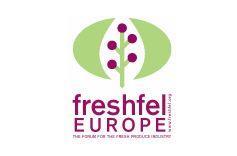
Freshfel Europe has called on the relevant authorities to do all they can to quickly identify the source of the E.coli outbreak that it says is seriously damaging the image of Europe's fresh produce industry.
The European fresh produce association, which represents the interests of the EU's fruit and vegetable supply chain, said that it deeply regretted the human toll linked to the E.coli outbreak, and that the 'primary concern' of the industry was the safety and welfare of consumers.
Highlighting what it described as a 'market standstill' leading to 'severe losses' following the outbreak, Freshfel called on the EU and its member states to assume leadership in managing the unprecedented crisis.
In addition to ensuring consumer safety, early identification of the outbreak's source will allow the industry to avoid 'unfounded speculation and prejudice' directed towards certain countries and products that may exist without the backing of concrete evidence.
'This unique microbiological contamination has far-reaching implications for the sector and placed a collective discredit to fresh produce,' said Ramon Rey, president of Freshfel Europe. 'Restoring confidence will be a costly and timely task. A prompt clarification of the source of the outbreak would isolate the case to its real cause. It would allow taking without further delay the needed steps to remedy this painful situation and rebuild consumers' confidence.' 
Freshfel added that the outbreak appeared to be an exceptional incident, and said that the existing food quality and safety protocols in place across Europe – such as GAP, GDP, HACCP and traceability – were effective, proven and should not be brought into question despite the E.coli scare.
No EU member states have yet taken action to restrict the free circulation of fresh produce on the single market, with preventative withdrawals taking place as part of the investigation into the source of the outbreak, none of which have proven to be the vector of the contamination.
Emotional calls for boycotting particular origins or giving preference to local products have 'no rationale', and would ultimately be to the detriment of all across the supply chain as well as consumers, Freshfel noted, with transparency and timely information from authorities of 'paramount importance'.
'While there is currently no official restriction to trade among EU member states, Freshfel is also concerned about the international impact as some third countries are threatening to close their borders for certain vegetable categories originating from some member states as long as the source of the outbreak is not identified,' said Freshfel general delegate Philippe Binard. 'Freshfel calls the Commission to guarantee the free circulation and the international trade for fresh produce.'
Similarly, European farming and cooperative organisation Copa-Cogeca has called on the EU and non-EU countries to 'urgently lift' what it calls unjustified trade restrictions on EU vegetables that have been implemented in the wake of the crisis.
Copa-Cogeca secretary general Pekka Pesonen said that it was 'totally unacceptable' to impose trade restrictions while the source of the outbreak is still unknown.
'This crisis has put an unbearable strain on EU producers, with losses reaching millions of euros a day, forcing some farmers and agri-cooperatives out of business,' he explained.
'We expect the Commission to come up urgently with a plan to cover these huge economic losses. We believe emergency assistance needs to be set up immediately,' Pesonen added. 'In the longer term, promotional measures must be activated to boost sales of this nutritious produce, which respect the highest production standards in the world, in order to restore consumer confidence.'






No comments yet